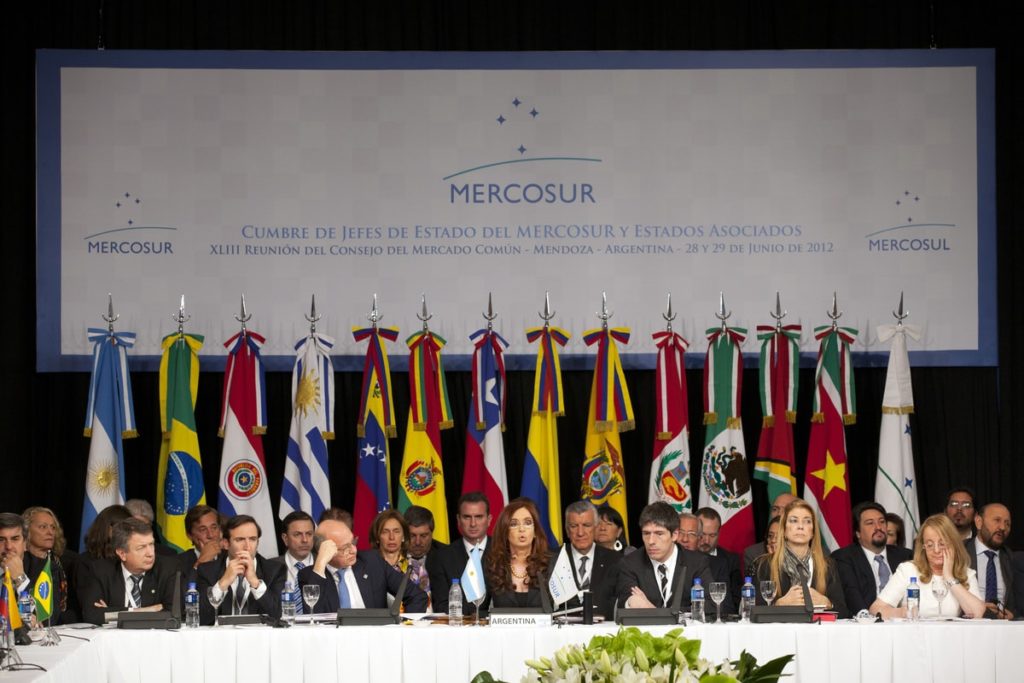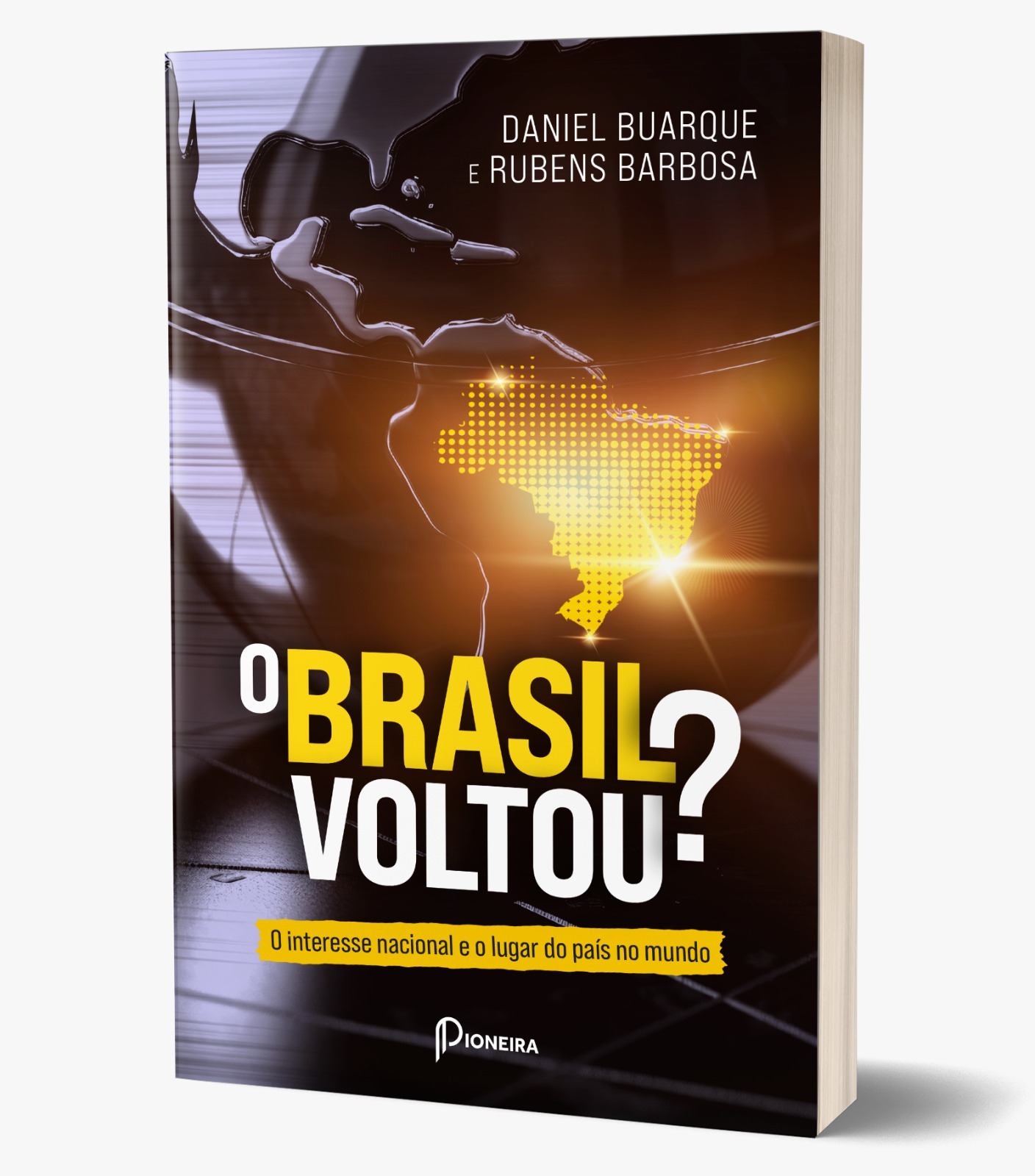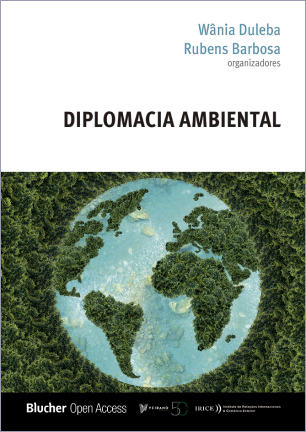Brazilian Elections and the risk Bolsonaro poses to Mercosur
By Patricia de Oliveira Dia* In April of 1996, in Asuncion, Paraguay, groups of protesters gathered in the city calling for blood, screaming for president Juan Carlos Wasmosy’s head. General Lino Oviedo, the head of the Armed Forces, had called on his supporters to oust the country’s first democratically elected president since Alfredo Stroessner seized […]

By Patricia de Oliveira Dia*
In April of 1996, in Asuncion, Paraguay, groups of protesters gathered in the city calling for blood, screaming for president Juan Carlos Wasmosy’s head. General Lino Oviedo, the head of the Armed Forces, had called on his supporters to oust the country’s first democratically elected president since Alfredo Stroessner seized power in 1954. The attempted coup d’état, nipped in the bud with minimal spilling of blood by the swift actions of the Brazilian, Argentine, and American ambassadors to Asuncion, resulted in the drafting of the Ushuaia Protocol on Democratic Commitment, adopted two years later. Known as the Democratic Clause, it affirms the regional bloc’s adherence to democracy, a bond not undertaken lightly, given the years of harsh military dictatorship several of the signatory nations endured prior to its formation.
The protocol has since been applied twice, first in 2012 , resulting in the temporary suspension of Paraguay after the summary trial and deposition of President Fernando Lugo, and then, in 2017 against Venezuela, which remains suspended.
Over the last two years, extreme right-wing President Jair Bolsonaro has been undermining confidence in the electoral process in Brazil, baselessly claiming that voting machines, which have been in use for decades, are fraudulent, and that he would not accept any result that did not guarantee his re-election. He has been widely spreading misinformation and instrumentalising evangelical fervor among his supporters, saying only God will remove him from the presidency. Mr. Bolsonaro lags behind in the polls, by between 3 and 15% depending on the source. His actions, including vehiculating inflammatory ads on social media and on several occasions, inciting his supporters to take to the streets and “prepare for war,” prompt concern over violence in the streets, and a local replay of the January 6th events in Washington DC. The fact that Mr. Bolsonaro and Mr. Trump share several close allies, including Steve Bannon, Trump’s campaign strategist, suggest that these fears are not unreasonable.
Brazil represents over 2/3 of the bloc’s economy and population. If Mr. Bolsonaro follows through with his threats, refusing to accept the democratic process and attempting to undermine the rule of law, there are two possible outcomes: Either the member states decide that Brazil is too big to be kicked out of the free trade area and ignore the democratic clause, weakening Mercosur and setting a precedent that paves the way for the return of authoritarian governments to the South America, or they apply the protocol and suspend Brazil, effectively gutting the trade union by removing its central pillar.
Mercosur has been a tremendous economic and strategic boon to the region over the years, with repercussions for human rights, environmental issues, legal integration, recognition of educational certificates, education and labor mobility, and much more, thanks to multiple agreements. It has also signed deals with various other countries and regional economic areas. One major agreement with the European Union is on ice since 2019, after 20 years of negotiations, largely due to the current government’s refusal to provide the environmental guarantees required by Europe.
An institutional crisis in Brazil poses a threat to an already fragile regional economy, and, in a worst case scenario, to stability on the continent. In a world already reeling from the lingering effects of the global pandemic, and gripped by uncertainty in the wake of Russia’s invasion of Ukraine, the collapse of Mercosur risks being the domino that topples several others in its wake.
*Patricia de Oliveira Dias holds a degree in Psychology from the American University in Cairo and an MBA in European Business from the Solvay School of the Université Libre de Bruxelles. She has worked as a foreign affairs consultant and was present at the Brazilian Embassy in Asunción during the attempted coup of 1996 and the initial discussions on what would become the Ushuaia Protocol.
Editor-executivo do portal Interesse Nacional. Jornalista e doutor em Relações Internacionais pelo programa de PhD conjunto do King’s College London (KCL) e do IRI/USP. Mestre pelo KCL e autor dos livros Brazil’s international status and recognition as an emerging power: inconsistencies and complexities (Palgrave Macmillan), Brazil, um país do presente (Alameda Editorial), O Brazil é um país sério? (Pioneira) e O Brasil voltou? (Pioneira)
Artigos e comentários de autores convidados não refletem, necessariamente, a opinião da revista Interesse Nacional



